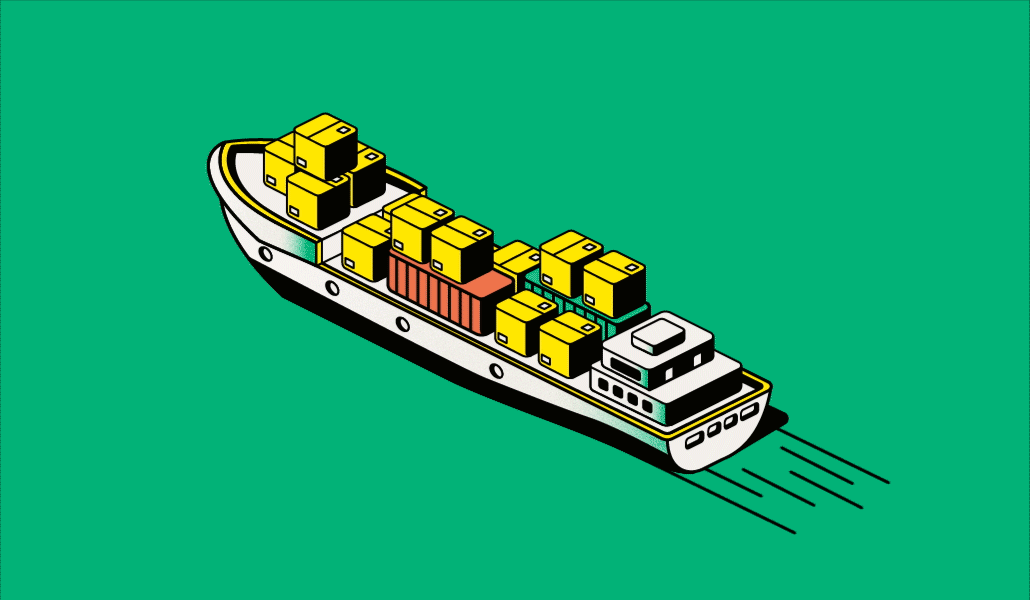‘We haven’t seen this situation before’: A perfect storm of supply chain issues could impact retailers globally

Retailers could once again bear the brunt of supply chain disruptions after Yemen’s Iran-backed Houthi group continues to attack commercial ships in the Red Sea, which offers access to the Suez Canal. But there are other supply chain issues
Already some retailers are expecting product delays and are planning to use pricier shipping methods. Late last month, furniture giant Ikea said that product deliveries would come late and some items would have more limited availability. Abercrombie & Fitch, on the other hand, plans to utilize air freight instead of sea.
To make matters worse, the Panama Canal is experiencing the worst drought in 70 years, which has impacted the water levels at its main water source, the Gatun Lake. The longer journey could cause retailers to miss the window to pick up spring products from Chinese factories before they close for the Lunar New Year.
The attacks unleashed by the Houthi rebels on ships on the Red Sea could bring more supply chain disruptions in 2024. The Suez Canal — a vital trading route that allows shippers to bring products faster to the East Coast of the United States and Europe — sits at the northern end of the Red Sea. Major shipping companies, such as Maersk and Hapag-Lloyd, have instructed vessels to take the longer route around Africa to avoid the attacks.
Diverting ships towards the Cape of Good Hope route around the south of Africa takes longer and is much more expensive, said Patrick Penfield, professor of supply chain management practice at Syracuse University. The Cape of Good Hope route adds 3,500 miles or roughly 10 days more travel for ships, he said. This additional travel time is also driving up costs, including gas and labor, which could ultimately be passed down consumers.
“Almost everybody’s rerouting around the Cape of Africa,” Penfield said. He added that halfway through the long journey, these ships have to refuel. “A lot of these folks are now refueling in South Africa, and South Africa is known to have very high fuel costs for ships, almost the highest. They don’t really have the infrastructure to handle all these additional ships that are coming around the Cape of Africa.”
The Suez Canal isn’t the only critical maritime passageway that is experiencing challenges. Daily transit in the Panama Canal has been reduced from 29 to 25 ships due to drought. The Panama Canal and the Suez Canal are two of the most important routes for global trade as they cut down travel time and eliminated the need for ships to take more dangerous paths. The Panama Canal’s daily transit will decline further to 18 ships in February. For reference, as much as 36 vessels travel through the Panama Canal under normal circumstances.
Ad position: web_incontent_pos1
“We haven’t seen this situation before, which is kind of shocking, where we’ve had both canals have issues at the same time,” Penfield said. “If you’re a retailer, this is going to drive you a little crazy because it’s just not going to be easy to get things as quickly as you’ve gotten them in the past via shipping.”
While there are other means to refill retailers’ inventories quicker, such as air freight and charter ships, they are costly. According to an email to suppliers obtained by Bloomberg News, Abercrombie & Fitch plans to lean on air freight to avoid disruptions. The company utilized the same tactic in 2022 when Vietnam lockdowns disrupted its supply chain operations. In the first quarter of 2022, the company’s freight costs climbed by $80 million from the previous year due to its increased reliance on air freight.
A saving grace for many retailers is that the busy holiday shopping season is over. Robert Kaufman, CEO of consultancy firm the Parker Avery Group, said that retailer’s spring and summer assortment will likely be impacted. U.K. retailer Next, for example, told the PA news agency that it could take “two to two-and-a-half weeks” for products to hit the U.K. In a statement to several news organizations in December, Ikea said that it was prioritizing the safety of the transportation staff.
“The situation in the Suez Canal will result in delays and may cause availability constraints for certain Ikea products,” the retailer told several news outlets in December.
Factories in China are also set to close for the Lunar New Year. This could add additional delays if shipping containers don’t arrive in time to get loaded, Kaufman said. “If [retailers] had planned to get these goods out of those factories before the Chinese New Year but now they don’t have the vessels on which to do it, they’re going to incur a couple [to] three weeks additional delay over and above the transit delay we’ve been talking about,” Kaufman said.
Ad position: web_incontent_pos2
Despite the supply chain constraints, this issue isn’t as challenging as the disruption during the pandemic, said Margaret Kidd, program director and instructional associate professor of supply chain and logistics technology at the University of Houston. Unlike the shopping behaviors during the Covid era, people aren’t spending as much on discretionary products. Factories also aren’t on lockdown like they were during the pandemic. However, the issue could balloon if the attacks last longer than expected.
“I don’t see that really as a long-term sustainable option,” Kidd said about the elevated costs and longer shipping times. “Let’s say that this [U.S.-led coalition] does have a military response to the Houthi, that could certainly escalate things. That could certainly create a whole new scenario that we’ve never seen before.”

